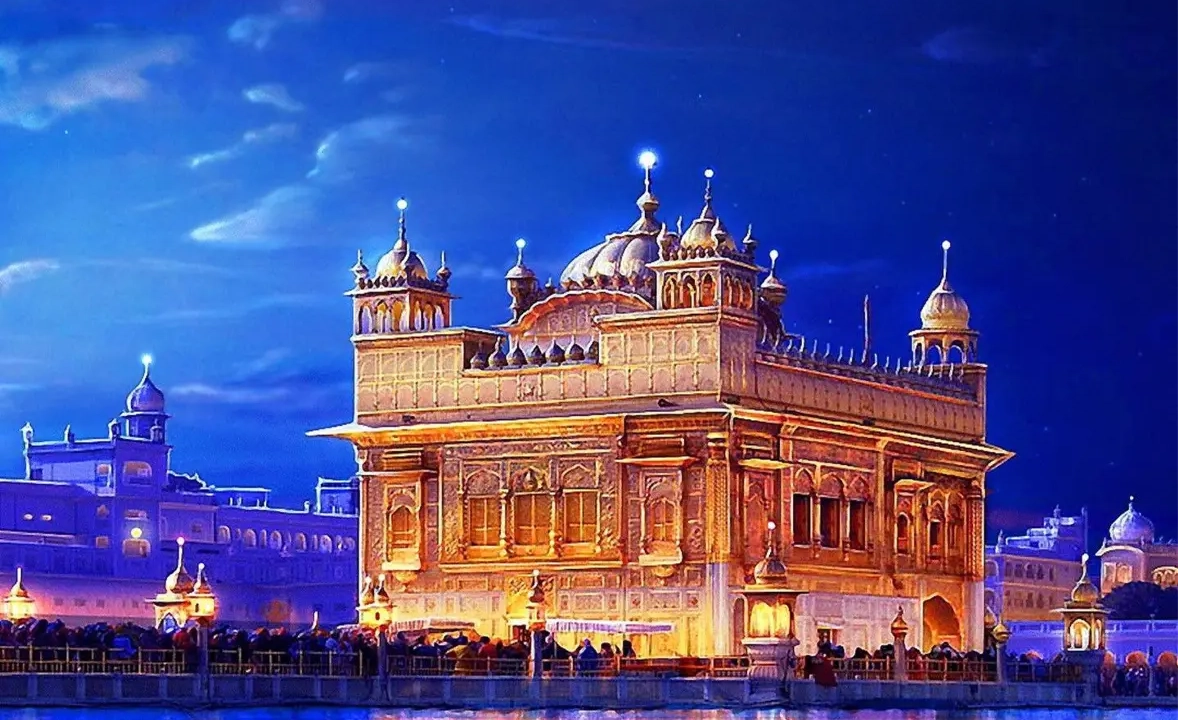Sikhi, a faith born in the fertile lands of Punjab in the late 15th century, found its divine guidance through ten spiritual luminaries known as the Sikh Gurus. Each Guru played a pivotal role in shaping Sikhi’s core values of love, equality, and devotion to the divine. Let’s take a journey through the lives and teachings of these divine messengers.
The first Guru, Guru Nanak Dev Ji, is the founder of Sikhi. His teachings revolved around the oneness of God, equality of all humans, and selfless service. He set the foundation for the faith, spreading his wisdom through verses found in the Guru Granth Sahib, the holy scripture of Sikhs.
Guru Angad Dev Ji, the second Guru, contributed by formalizing the Gurmukhi script, which is used to write Punjabi. He also reinforced the concept of langar, a free community kitchen in Gurdwaras, where all people, irrespective of their backgrounds, sit together to share a meal.
Guru Amar Das Ji, the third Guru, is known for formalizing the Anand Karaj, the Sikh marriage ceremony. His legacy includes promoting the idea of social equality, with all people regardless of their caste or social status, being asked to sit together in his presence.
Guru Ram Das Ji, the fourth Guru, established the city of Amritsar and initiated the construction of the Harmandir Sahib, famously known as the Golden Temple. He emphasized the importance of selfless service and humility.
Guru Arjan Dev Ji, the fifth Guru, compiled the Guru Granth Sahib, which includes the writings of the Gurus. He also built the Harmandir Sahib. His commitment to inclusivity and promoting the teachings of the Sikh Gurus made a profound impact on Sikhi.
Guru Hargobind Ji, the sixth Guru, introduced the concept of Miri-Piri, signifying the combination of spiritual and military leadership. He emphasized the importance of self-defense while remaining spiritually connected.
Guru Har Rai Ji, the seventh Guru, was a compassionate leader who focused on the well-being of all creatures. He emphasized the principles of love and caring for nature.
Guru Har Krishan Ji, the eighth Guru, was known for his deep spirituality and wisdom, even at a young age. He became Guru at just five years old and continued to spread the teachings of Sikhi.
Guru Tegh Bahadur Ji, the ninth Guru, stood for the freedom of religion. He made the ultimate sacrifice for this cause, giving his life to protect the rights of others to practice their faith freely.
Guru Gobind Singh Ji, the tenth Guru, is revered for establishing the Khalsa Panth, a community of initiated Sikhs. He emphasized the importance of standing up against oppression and injustice.
The teachings and legacies of the ten Sikh Gurus form the bedrock of Sikhi. Their emphasis on love, equality, and devotion to the divine remain the guiding principles of the faith. Their teachings inspire Sikhs worldwide to live with compassion, serve humanity, and always stand for what is right.
If you’ve found this article enlightening, consider supporting our mission to spread Sikh wisdom and teachings. Your generous donation can help us continue our efforts in promoting unity, understanding, and selfless service.



